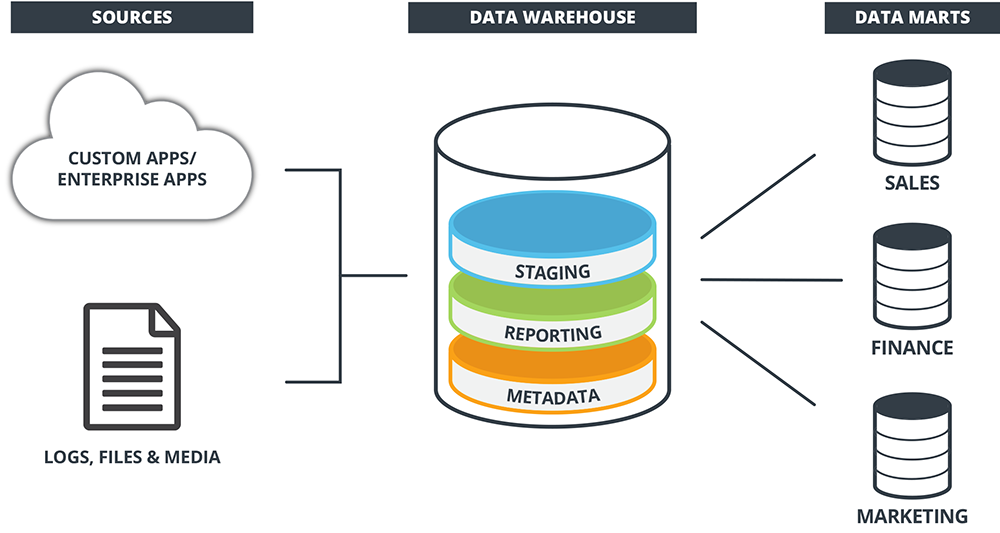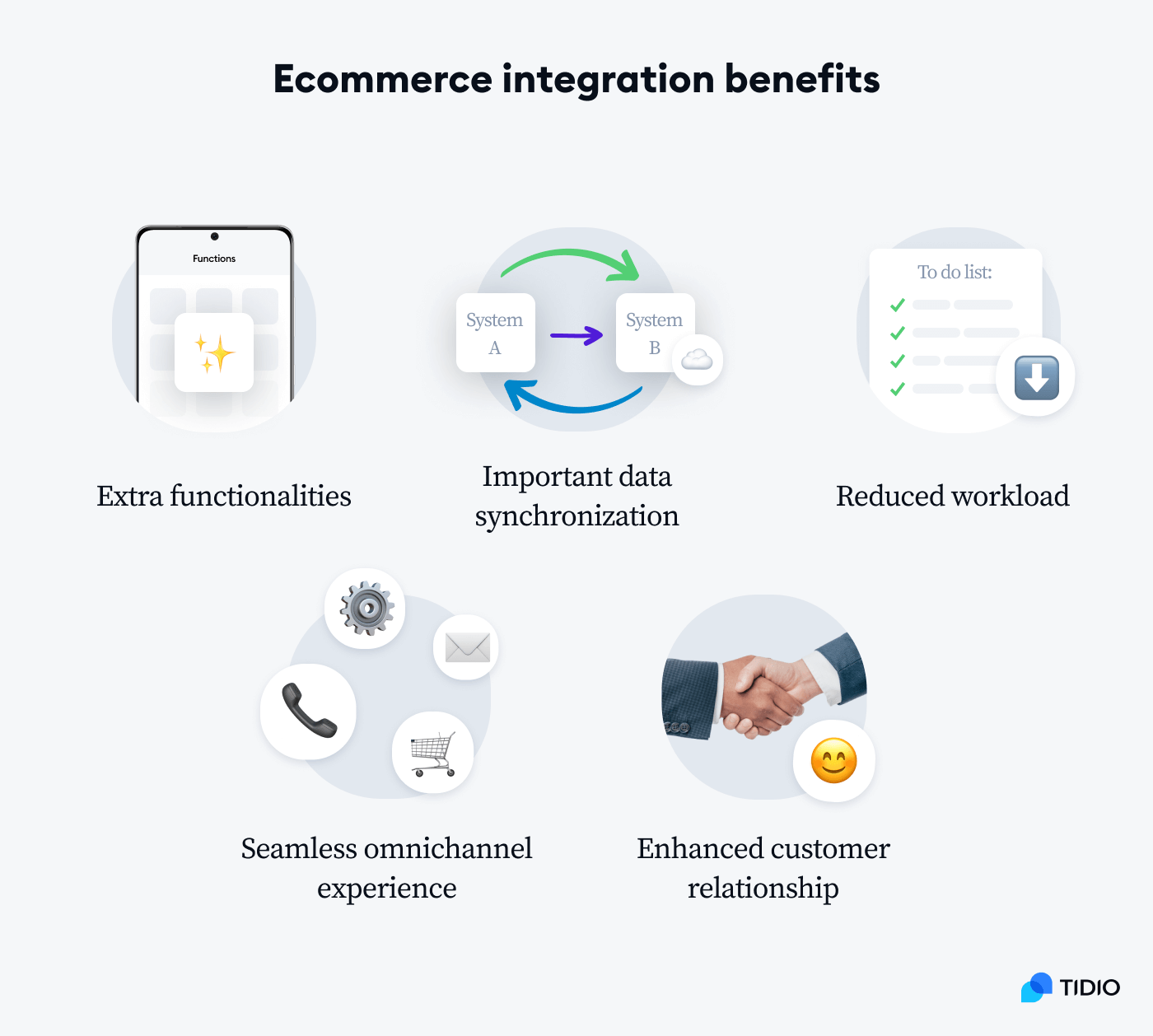The surge in online transactions and the exponential growth of digital marketplaces have transformed how consumers engage with brands, making data management the lifeblood of the E-commerce industry. As consumer expectations reach unprecedented heights, businesses are confronted with a vital challenge—how to effectively leverage the raw potential of data to fuel growth and maintain a competitive edge.
The solution to this challenge lies in adopting efficient data management strategies. Automated data management solutions empower e-commerce vendors to unlock valuable insights and facilitate data-driven decision-making, culminating in an enhanced overall customer experience.
The impact of data in the E-commerce world
The digital landscape has witnessed an extraordinary surge in data generation, providing e-commerce businesses with remarkable opportunities to comprehend consumer behaviors and market dynamics. From granular details about customer preferences and browsing behaviors to intricate aspects of inventory management and marketing analytics, the data repository can provide E-commerce dealers with innovative insights.
It also helps to facilitate a highly personalized shopping experience, enabling tailored recommendations and marketing efforts that enhance customer satisfaction and foster brand loyalty. Businesses can craft targeted marketing campaigns through detailed customer data analysis and behaviors, resulting in heightened engagement, improved conversion rates, and enhanced return on investment for advertising spend.
Challenges in implementing data management practices
Data management in e-commerce is crucial for achieving success and maintaining a competitive edge. However, this indispensable process comes with a set of unique challenges. Overcoming these hurdles is paramount to unlocking the full potential of data and capitalizing on its transformative capabilities within the dynamic digital retail space. Let’s delve into the prominent challenges faced in implementing data management practices:
Data volume and variety
The sheer magnitude and diversity of data generated by e-commerce platforms is massive and continues to grow exponentially. The data comes in various formats and sizes, from customer transactions and website interactions to social media engagements and inventory records. Managing and organizing this diverse and vast data pool is a significant challenge.
Data silos
Data silos present as one of the major obstacles in e-commerce data management. Factors contributing to data silos include isolated data storage methods, departmental divisions, incompatible data formats, limited accessibility, etc. Data silos impact the overall customer experience by impeding a unified view of customer interactions.
Data privacy and security
E-commerce platforms handle confidential client data, such as transactions and personally identifiable data. Adhering to stringent data privacy regulations and safeguarding data against breaches and cyber threats is a critical challenge. Balancing data accessibility with robust security measures is a delicate task.
How can e-commerce retailers overcome these challenges?
Overcoming the multifaceted challenges in e-commerce requires a comprehensive approach, integrating strategic initiatives, cutting-edge technologies, and an unwavering commitment to continuous improvement. Here are effective strategies that e-commerce retailers can implement to conquer the challenges of data management:
Data warehouse
A data warehouse is the engine powering e-commerce sales, centralizing and harmonizing a wealth of data from diverse sources. This centralized repository forms the bedrock for informed decision-making, offering a panoramic view of customer behavior, inventory levels, marketing efficacy, and more. With actionable analytics, e-commerce platforms can modify their pricing, promotion, or inventory management strategies to meet customer expectations precisely. This guarantees personalized shopping experiences and optimizes operations, resulting in quicker processes and a significant increase in sales.

Furthermore, a data warehouse fuels e-commerce sales by allowing businesses to craft personalized marketing strategies that resonate with their target audience. By analyzing customer preferences and purchase histories, e-commerce platforms can precisely target their marketing efforts, maximizing engagement and conversion rates. The efficiency gained from this centralized data hub extends to inventory management, cost savings, and, ultimately, enhanced customer satisfaction, pivotal in driving increased sales and revenue in the competitive e-commerce landscape.
Data integration
Data integration allows businesses to merge insights from various data sources and utilize them strategically. E-commerce platforms gain a holistic view of their operations and customers by consolidating customer data, inventory information, marketing analytics, and more. This comprehensive understanding enables personalized marketing campaigns, efficient inventory management, and seamless customer experiences across channels. The result is an optimized approach that caters precisely to customer needs, streamlines operations, and propels e-commerce sales to new heights.

One of the significant advantages of data integration in e-commerce is the ability to derive actionable insights and make data-driven decisions. By amalgamating and analyzing data on customer behavior, sales patterns, and marketing effectiveness, e-commerce businesses can fine-tune their strategies. This includes dynamic pricing strategies, targeted marketing, and customized suggestions relevant to specific customers. Data integration is the linchpin that empowers e-commerce businesses to enhance customer engagement, boost operational efficiency, and drive increased sales and revenue.
Data extraction
Data extraction tools are pivotal in boosting e-commerce sales by automating and streamlining vital data collection from diverse sources. These tools efficiently gather data like product prices, customer reviews, and competitor information from various online platforms. E-commerce businesses can make informed decisions regarding pricing strategies, product optimization, and market positioning by automating data collection and providing real-time insights. This informed approach ensures that businesses remain competitive, offering the right products at the right prices, ultimately driving increased sales and revenue.
Moreover, data extraction tools enable e-commerce platforms to keep a pulse on customer sentiments through reviews and feedback analysis. Understanding consumer preferences and perceptions allows firms to modify their goods and marketing tactics to suit the needs of their customers better. By optimizing products and engaging with customers based on this data, e-commerce businesses create a more appealing shopping experience, thus boosting customer satisfaction and fostering customer loyalty, significantly contributing to higher sales and sustained growth.
Final thoughts
Navigating the path to e-commerce success entails mastering the art of data management. At Xtract.io, we offer advanced data management solutions that empower e-commerce businesses to conquer challenges, unlock potential, and drive unprecedented growth. Our robust data management solution enables e-commerce enterprises to embrace a data-driven future confidently. Talk to our data experts today and modernize how you deal with end-to-end data challenges.







